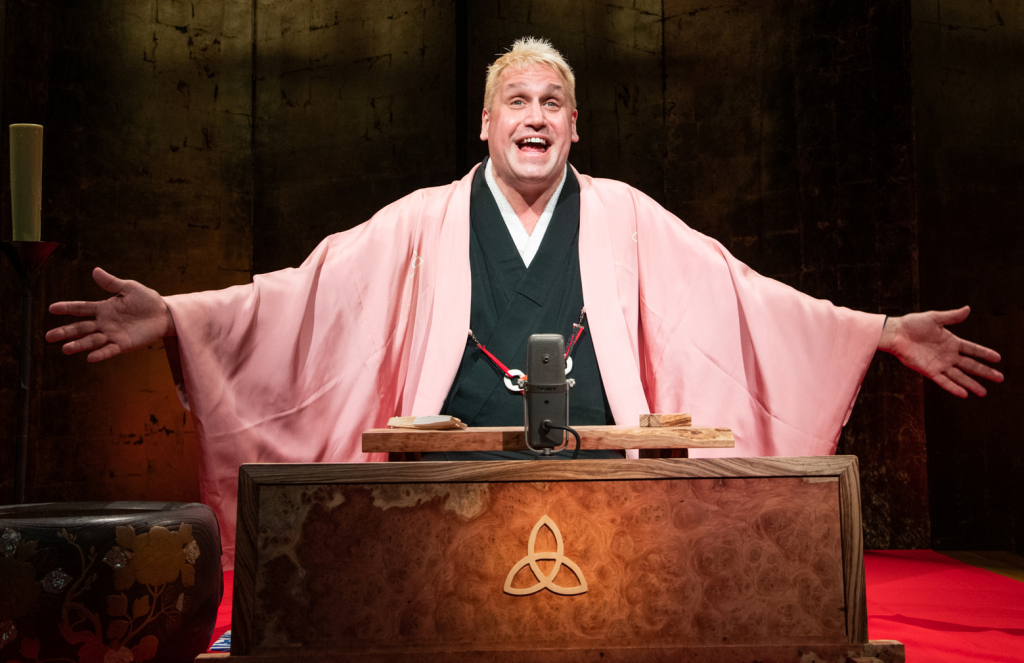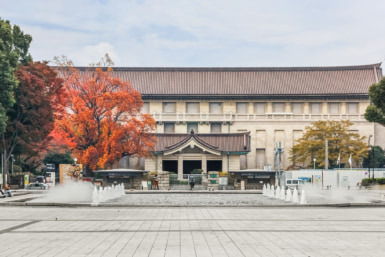Katsura Sunshine made an immediate impression on me. His happy-go-lucky energy was tangible even through a computer screen; there wasn’t a moment that I didn’t mirror his wide smile. A naturally gifted entertainer and fascinating character, he has performed all around the world including a six-month stint in New York and as an MC for the G20 summit in Osaka. To reduce our conversation to just ten questions proved to be impossible.
Rakugo’s inception in the Edo period was to entertain bored townsfolk through character-driven storytelling. It’s performed as a monologue by a solo performer sitting in seiza style with no accompaniment except their kimono. Two elements make the show: original content by the comic, and stories passed down from master to apprentice. But don’t forget the punchline, hence the words raku meaning ‘to drop’ and go meaning ‘words’.
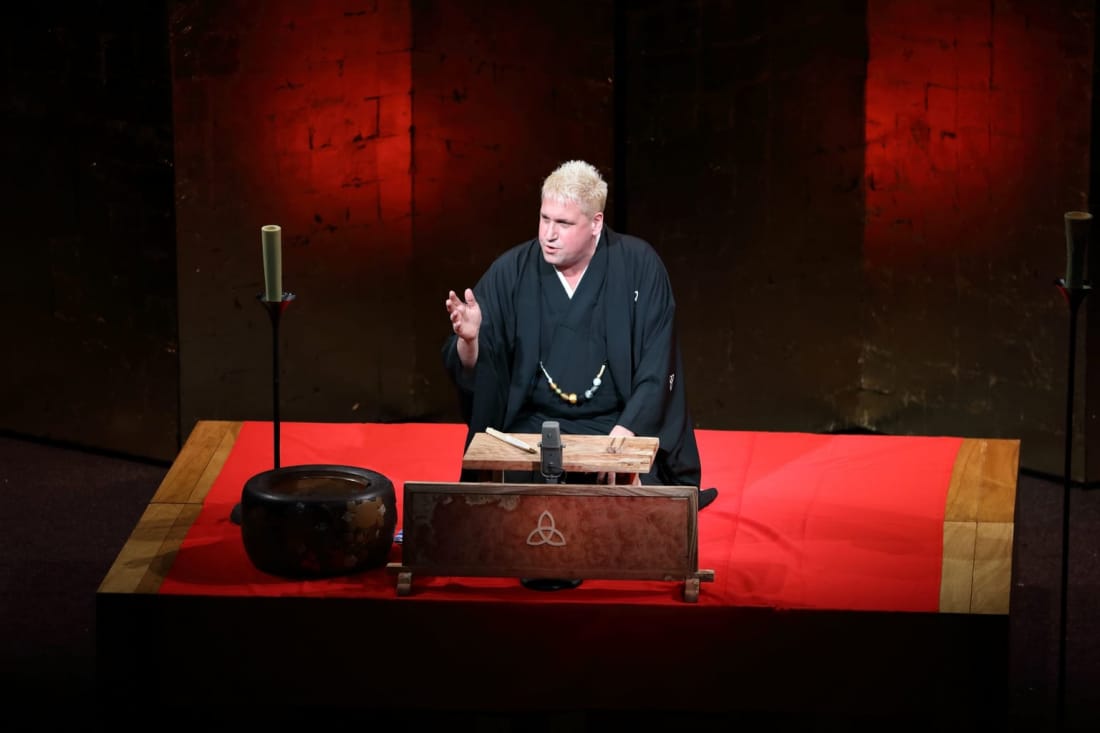
1. Why and when did you first come to Japan?
I was researching Greek theater at the time and a scholar had written an article pointing out similarities between ancient Greek tragedy, comedy and Japanese Noh and Kabuki. They’re 2000 years apart geographically, there was no chance of any connection among the cultures and yet there was. The use of masks, a different speaking style and even the instruments they used.
I thought, “this is kind of cool.” Let’s go see some Kabuki and maybe that’ll inspire my next musical. So, I just came and it was only supposed to be for a couple of months, but within about three days I said, “I’m never going back to Canada; this place is way too interesting.”
2. Your first time seeing rakugo?
I was living in Yokohama and I went to this tiny yakitori shop literally eight times a week. The owner held a rakugo show there once every two months, and he said, “if you like Japanese culture so much, you should see rakugo.” On a whim, I replied, “I’m free this Sunday.”
It was love at first sight. The rakugo language is older Japanese; it was hard to understand the story, but the first half (the stand-up comedy bit) is a one-man play and ends in a punchline. You can figure out the style without an explanation. I was aimless in Japan for a long time. I was still writing theater for Canada, but teaching English at university here. My work was here, but my passion was there. And then it all came together in one incredible moment, by a bolt of lightning. To think of what my life would be if I had not met rakugo. I just can’t imagine.
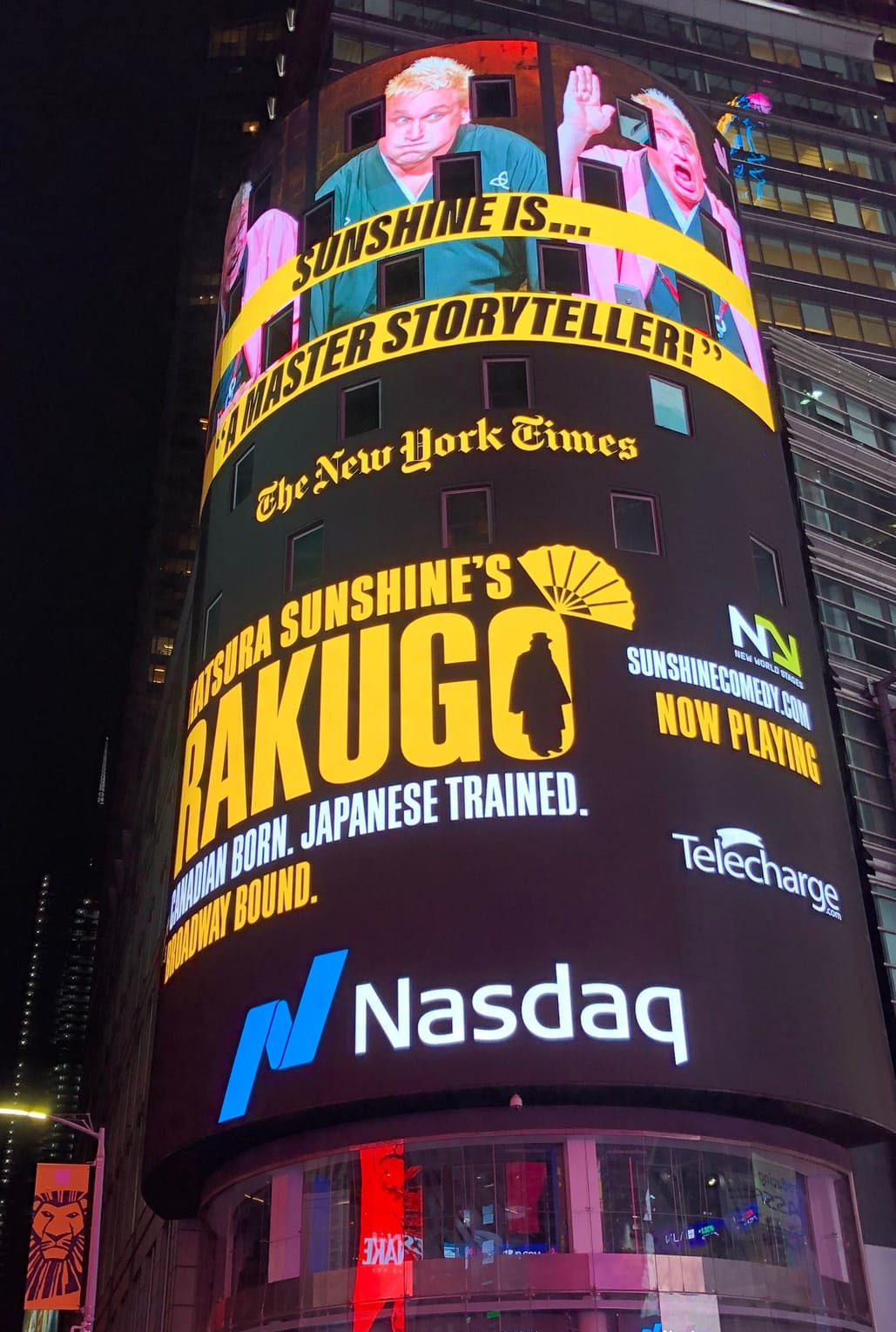
3. How is performing in New York compared to Tokyo? And would you say that a lot of people that go to your show have an interest in Japan?
It was incredible. It’s a dream come true and every audience is different. People ask me — especially rakugo masters — “Is there a different reaction between countries?” There’s a different reaction between every show! They’re very old stories and very simple stories and you don’t have to understand Japanese culture to get the humor of it because it’s very much human. It’s a husband and wife arguing, or the walls are thin so you can hear your neighbor gossiping about you. A thief that never manages to steal anything, but ends up making friends with his victims. There’s not as much of a cultural barrier as you would think.
Now, the interesting thing. I asked people, “Well, if you don’t have any connections to Japan, why did you come to see the show with all the different entertainment in New York?” The number one answer was, “I read in a review about your three-year apprenticeship, that you cleaned your master’s house for three years, carried his bags, like something out of karate kid.” 80% of the people had nothing to do with Japan but seized on the apprenticeship as being their ‘what caught them’ and I found that so fascinating.
I finally got accepted as an apprentice to learn how to be a comedian and the first thing he says is, “Don’t talk.”
4. Could you tell me more about the apprenticeship? It sounds like a movie montage.
It’s interesting because The Karate Kid is very ‘Hollywood’. That apprenticeship ‘wax-on wax-off’ scene has nothing to do with karate and yet Mr Miyagi goes to hit him after a week and he blocks it. It’s actually such a fitting and true representation of a Japanese apprenticeship. It’s, “Take it easy, we’ll teach you comedy in a couple of years.” My master told me not to talk for six months because I couldn’t speak polite enough Japanese. I finally got accepted as an apprentice to learn how to be a comedian and the first thing he says is, “Don’t talk.”
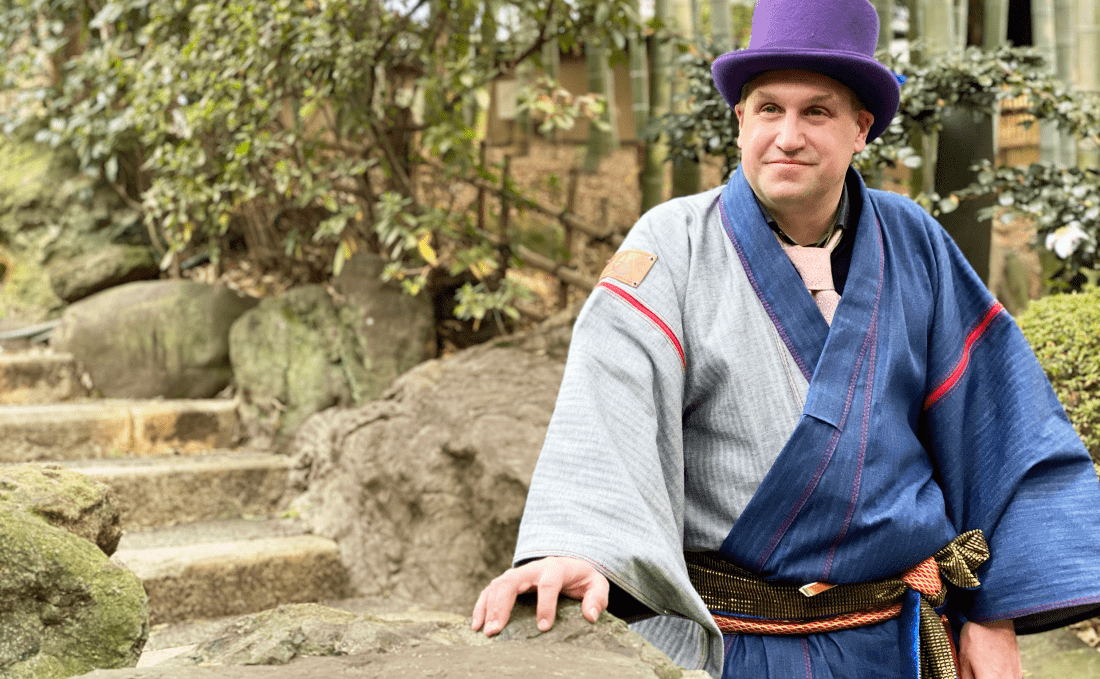
Katsura Sunshine wearing his custom-made denim kimono. Photography by Marie Fukuda
5. Your master Katsura Bunshi VI is much loved and respected in Japan. He gave you your name, Katsura Sunshine. Is it also true that he told you to dye your hair?
Yes. Generally, when you become an apprentice, you become part of the rakugo family of your master. You receive their family name — that’s Katsura. His name at the time was Katsura Sanshi, san as in three and shi as in eda (branch). He gave all of his apprentices the kanji three so that we could be identified with his family. When he gave me a name, he actually put a lot of thought into the fact that I would probably be performing abroad and he wanted a name that would be familiar and fun. And so he took the Kanji for shine, which is 輝く (pronounced Kagayaku or ki) and changed the pronunciation to the English ‘shine’. And so, it becomes a pun — ‘sanshine’ or sunshine.
The moment he gave me that name he said, “You don’t look foreign enough (I had brown hair). You’re not taking advantage of your character. Why don’t you dye your hair blonde?” I dyed it with this stuff you get in a normal drug store and it turned orange. And he looked at me the next day. He said, “That’s not blonde. I didn’t name you Katsura Orenji.” I think I became the first-ever rakugo apprentice in the 400-year history to dye his hair during an apprenticeship.
6. You’re also the second Western rakugoka in history. Was it difficult at the beginning to find a master?
I did know before I asked my master that you can’t just go around asking masters. If Japanese people get refused by one, they go back to the same one and ask again and again and again. If the master who took you knows that you had actually asked other people beforehand, that’s a terrible insult. So, I took the decision very, very seriously. I never asked anyone outside of my master.
“Was it difficult to find a master?” I mean the first person I asked accepted me. So, in that sense, no, but it took two years for me to kind of get up the courage to ask someone, and it took eight months for him to accept me. He didn’t say, no. He didn’t say, yes. There was a kind of ‘we’ll see’ period. That’s common in Tokyo, not as common in Osaka (where I trained), to do a one-year minarai which means you’re not officially accepted yet both parties are free to say this isn’t working out. Do I think mine was eight months in Osaka because I’m a foreigner? Yeah. But also, my master ended up accepting me at the age of 38, way older than I think he would have accepted a Japanese apprentice. I got a pass because I didn’t know about rakugo when I was 18.
I think for me being a foreigner in this very traditional strict Japanese world, it’s had some advantages and some disadvantages. And I think both of them are less extreme than people want to think.
7. The first half of a rakugo show is original content. Where do you get your comedy material?
Yeah, that’s the fascinating thing, because I just thought all my seniors were geniuses with all the incredible material they made. I realized they were not making up these stories, they were just taking them from their everyday life. I learned that quite quickly. Okay, so this job is a lot easier than I thought; stuff is happening every day!
8. Could you give me an example?
9. You also have a custom-made denim kimono line. Are you interested in fashion?
I love fashion. I wanted something to wear when I was not on stage because I was always wearing formal silk kimonos, but I just wanted something a bit crazy (like in New York) to walk around the streets in. So, I had a denim kimono made. I put a zipper on the sleeves so that you can replace them with a Japanese pattern or a New York style.
This is great; with one kimono, I could have so many different outfits. Then I made furisode (long, swinging sleeves) usually worn by unmarried women. However, in the Edo period, there were some crazy fashionista guys who actually loved this as well. Nobody would do it now, but I just did it. So many people wanted one. I kind of took advantage of the time that I had with not being on stage to create the fashion line.
10. What does your 2021/2022 look like?
I don’t pretend to be super confident that Covid is going to end soon, but I have a couple of goals: to be back on Broadway, to have a Netflix special, to be in the West End and start a world tour. It’s my dream job, but it doesn’t feel like a dream. It’s all achievable. If you play your cards right and you work hard, that will all eventually pay off. You have to embrace failure. A failure is just a step to the next step.
See Katsura Sunshine in Tokyo on March 3 at the Yoshimoto Yurakucho Theatre. Please see our event listing for more details.
Also, catch more on his YouTube channel where he performs live every Saturday at 11:00 JST.
Photography by Ross Howard unless otherwise mentioned.
Updated On December 28, 2022

